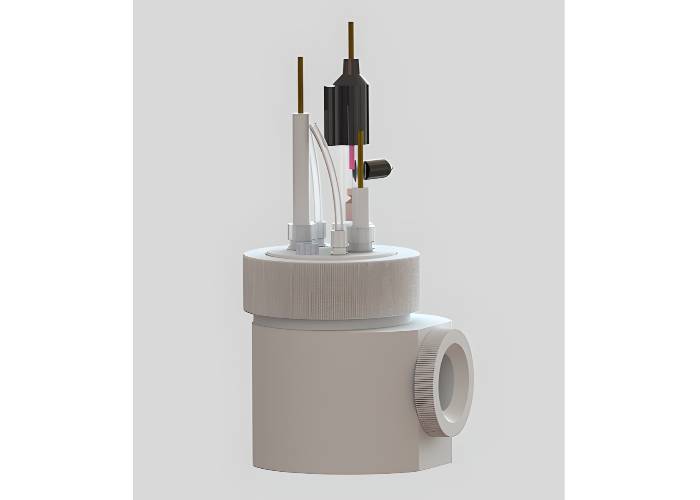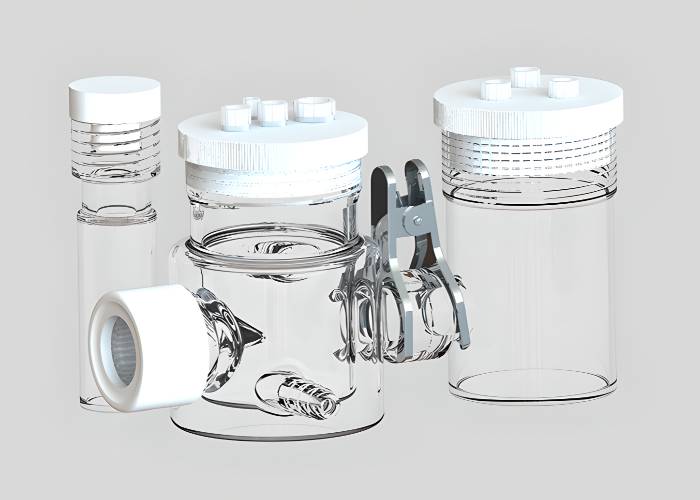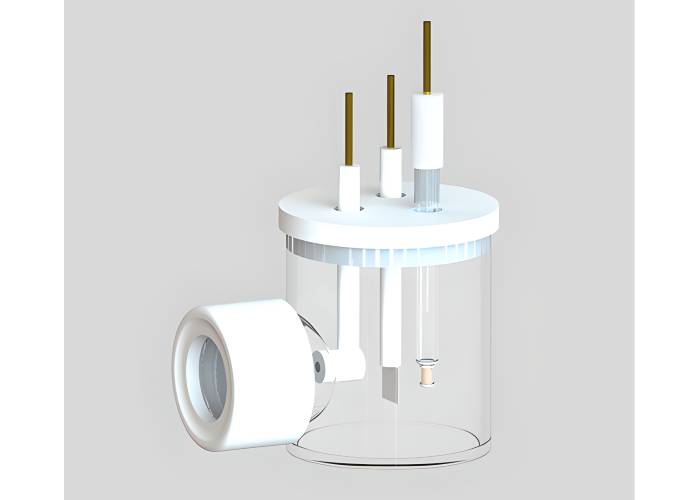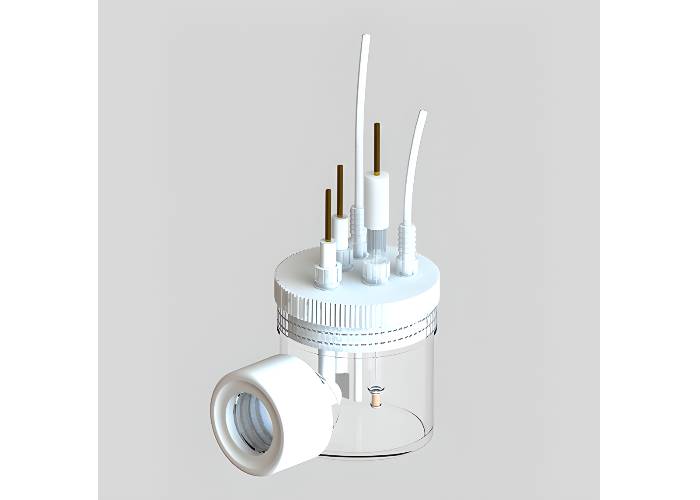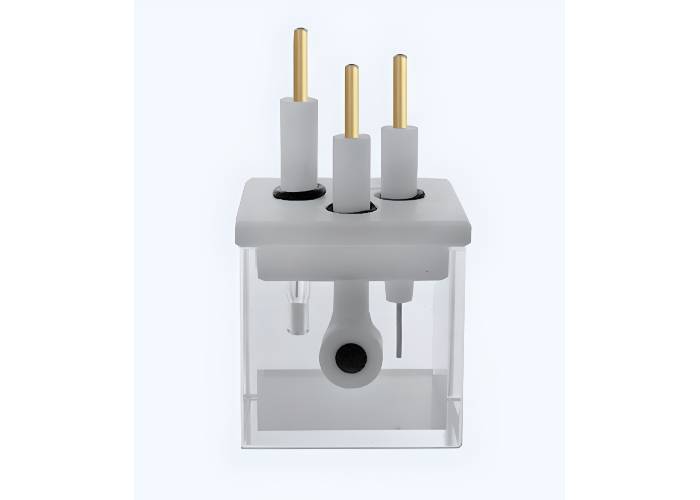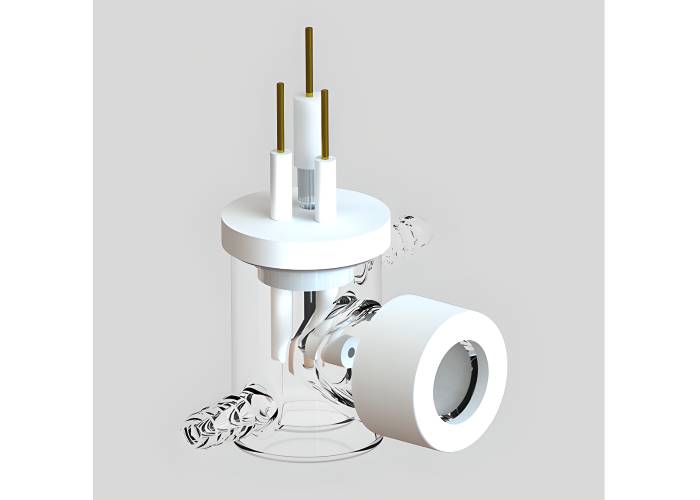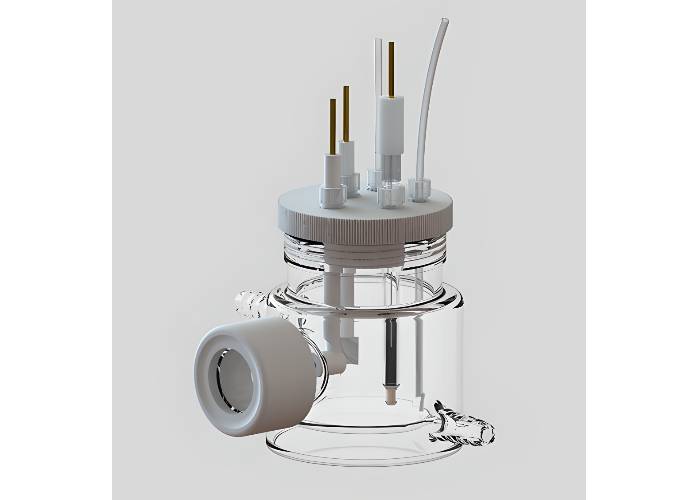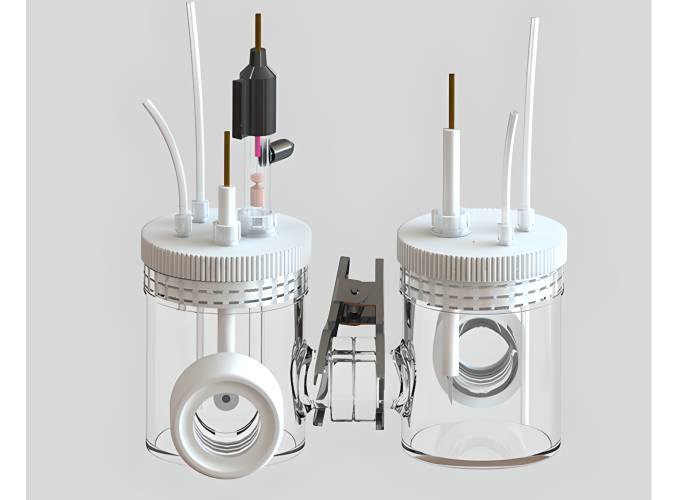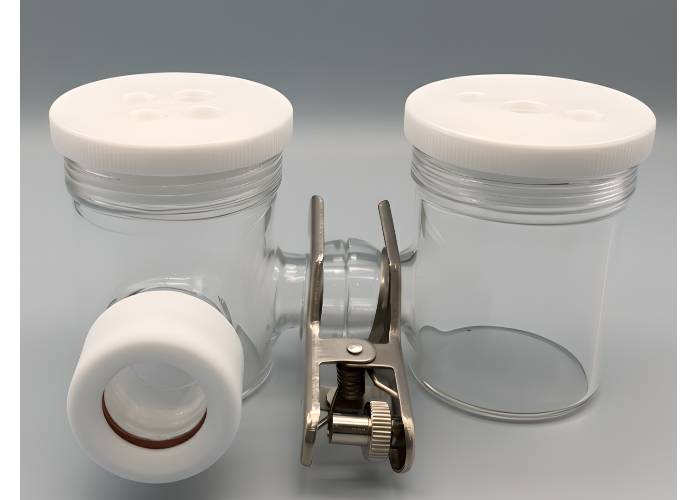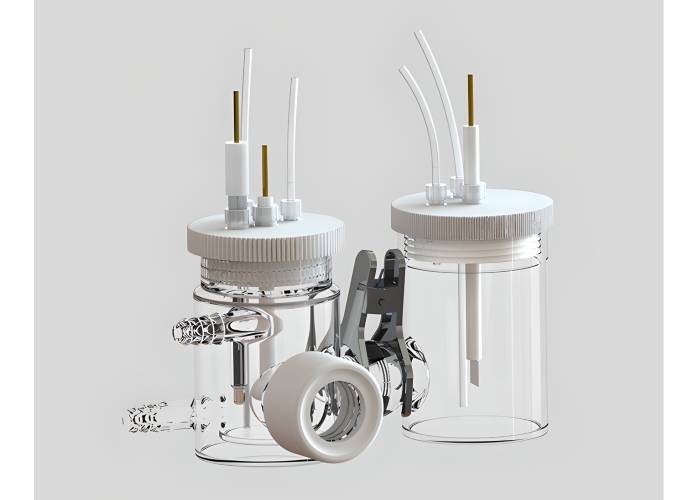
H-Type Jacketed Photoelectrochemical Cell – Sealed Type
H-Type Jacketed Photoelectrochemical Cell – Sealed Type
H-Type Jacketed Photoelectrochemical Cell – Sealed Type
Overview
- The H-Type Jacketed Photoelectrochemical Cell is designed for precision photoelectrochemical (PEC) and electrocatalytic research where temperature stability and chemical resistance are critical.
- Constructed from high-purity borosilicate glass with removable quartz windows (Ø 24 mm), this sealed dual-chamber configuration enables controlled separation of anodic and cathodic environments.
- The integrated water-circulation jacket provides efficient temperature regulation, making it ideal for long-duration PEC, CO₂ reduction, and hydrogen-evolution experiments.
Key Features
- Dual-chamber H-type design: Physically separates working and counter electrodes for accurate ion-exchange studies.
- Removable quartz windows: Allow easy cleaning, replacement, and efficient optical transmission for UV–Vis and solar simulations.
- Temperature-controlled jacket: Enables circulation of water or coolant for stable thermal management during light-assisted reactions.
- Quick membrane replacement: Ion-exchange membranes can be changed rapidly between experiments.
- Fully sealed system: Ensures airtight and leak-proof operation, preventing contamination or gas crossover.
- Research-grade materials: Glass and PTFE components guarantee excellent chemical inertness and durability under electrochemical conditions.
Available Capacities
- 50 mL
- 100 mL
- 150 mL
Customisation Options
ScienceGears offers customisable configurations to suit specific experimental requirements:
- Alternative quartz window diameters or optical thicknesses
- Additional reference or gas-sampling ports
- Modified jacket fittings for different coolant lines
- Integrated light-path alignment for in-situ spectroscopy
- Multi-electrode or membrane-support options for advanced PEC studies
For tailored designs, contact info@sciencegears.com.au with your application details.
Applications
- Photoelectrocatalysis and solar-fuel generation
- CO₂ reduction and hydrogen-evolution studies
- Semiconductor and thin-film PEC testing
- Corrosion and photocorrosion investigations
- Water-splitting and redox-coupled electrolysis experiments
Customer Reviews
Related Product
Explore our precision instruments designed for electrochemical research and energy applications
Still Wondering About Something?
Explore our FAQ for fast, clear answers to the most common questions—available 24/7.

